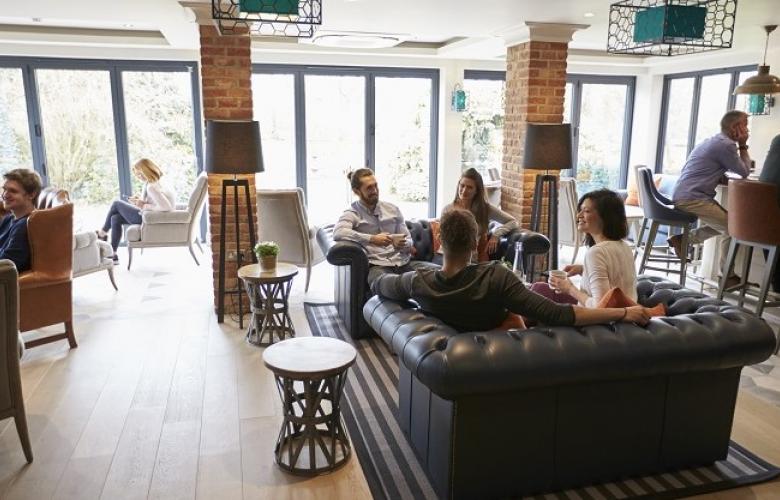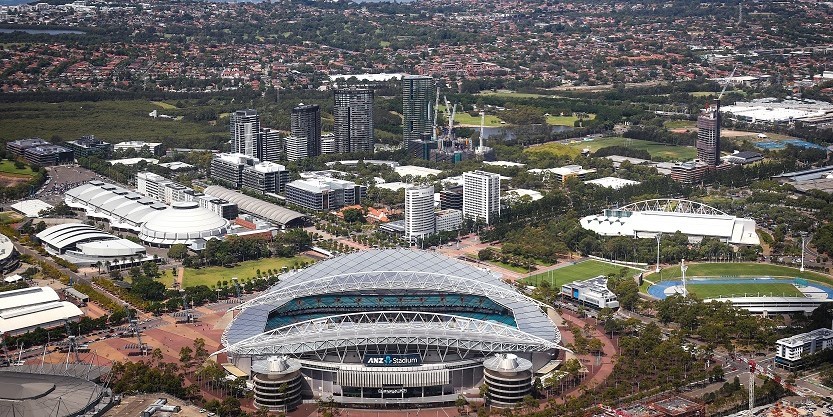Why Sydney hotels are in spruce-up mode, says JLL
Contact
Why Sydney hotels are in spruce-up mode, says JLL
Hotel operators rethink strategies on when best to refit, report by JLL Hotels.
Deciding when is best to take on a refurbishment project can often pose a headache for hotel owners and operators. Major works tend to have big payoffs in the long-term, but inconveniencing guests in the short-term is almost inevitable, regardless of the timing.
The best solution is often presented during quieter periods, which tend to crop up only periodically in big cities that draw swathes of tourists and business travellers for a variety of reasons, with a year-round major events calendar.
“Looking for opportunities to drive performance and investor returns is ongoing for hotel operators,” says Ross Beardsell, Head of Asset Management and Project & Development Services – Hotels and Hospitality, JLL. “It’s not easy to know when to strike.”
Take Sydney, Australia. Right now, two major stadium overhauls earmarked for 2020, have promised to lift the city’s reputation as a major sporting, events and entertainment powerhouse, presenting hoteliers with the chance to jump on refurbishments to enhance their product offering.
For instance, Accor, the largest hotel operator in Australia with a network of over 340 hotels and resorts, has a development team at the ready to identify strategic refurbishment opportunities, as well as opportunities to repurpose areas of its hotels.
“With food tourism increasingly playing a part in consumer’s hotel booking behaviour, evolving and innovating Accor’s food and beverage operations will be a major theme right throughout 2020 and beyond,” says Scott Boyes, Accor Pacific’s Vice President of Operations NSW/ACT.
Image Credit: JLL
When opportunity strikes
Around the world, refurbishing stadiums can be a statement to sports fans and concert-goers that a city is truly world-class. But long periods of construction mean hotels and other businesses are forced to contend with a period of disruption.
Sydney Football stadium and Stadium Australia, two of the most prominent sporting arenas in New South Wales, attract around 4.5 million people each year. But this year, both are out of commission.
Sydney is not the only city facing stadium redevelopments. Football clubs AC Milan and Inter Milan have launched a bid to knock down and rebuild the iconic San Siro stadium they share. While English football club Tottenham Hotspurs recently moved into a new London stadium. The redevelopment was subject to months of setbacks, causing Premier League and NFL matches to be moved.
On the positive side, back in Australia, Adelaide and Perth have seen a major redevelopment or complete new build of major stadiums, and the benefits to the local economies and tourism industries has been significant and long lasting. The short-term disruption is certainly worthwhile in the long run.
In Sydney, the disruption is displacing key events, like the 2020 rugby union Bledisloe Cup opener – one of Australia’s biggest sporting events – and the National Rugby League grand final.
Disruptions aside, investing into core infrastructure increases investor confidence, Boyes says.
“It’s pleasing to see that the Australian Government is regarding tourism as a tier-one sector and our industry is receiving solid investment into key infrastructure - such as stadiums -from all states and territories.
“Major events held at stadiums really drive visitation and demand to our cities, boosting not only tourism but the local economy, with incremental spend fuelling the wider economy.”
Supply and demand
Sydney is a top draw for tourists. In the five years to March 2019, domestic overnight visitors increased by 33.5 percent to 11.4 million, while the average number of nights they stayed in the city increased 35.2 percent to 2.7, according to Tourism Research Australia.
Over the same period, overseas visitors increased by 38.3 percent to 4.1 million, while the average number of nights they stayed increased by 32 percent to 20.3.
“The demand for hotel accommodation in Sydney from Monday to Thursday is consistent as we have a great conference centre, good corporate activity, and Sydney is a vibrant tourism destination,” says Beardsell. “But it’s between Friday and Sunday that the stadiums really come into play.”
Over the next three years, hotel owners and operators, particularly those in the Stadium Australia catchment of Greater Western Sydney, will see an opportunity to undertake refurbishments without impacting the cash flow of their businesses, Beardsell says.
“When the market’s going full steam, which ones do you think will fill up first? Those with the freshly painted walls, the modern conveniences and amenities that are bang up to date with what tourists are looking for in a hotel.”
This article was first published on JLL, read more here.
Similar to this:
Crowne Plaza Sydney Coogee Beach unveils multi-million dollar redesign
Sydney's Darling Harbour to welcome first Australasian Aiden Hotel








